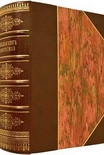Myths and Legends of China by E. Werner (free ebook reader for iphone TXT) 📗

- Author: E. Werner
Book online «Myths and Legends of China by E. Werner (free ebook reader for iphone TXT) 📗». Author E. Werner
Since the establishment of the Republic in 1912 the ‘landslide’ in the direction of Western progress has had its effect also on the domestic institutions. But while the essentials of the marriage contract remain practically the same as before, the most conspicuous changes have been in the accompanying ceremonial—now sometimes quite foreign, but in a very large, perhaps the greatest, number of cases that odious thing, half foreign, half Page 25Chinese; as, for instance, when the procession, otherwise native, includes foreign glass-panelled carriages, or the bridegroom wears a ‘bowler’ or top-hat with his Chinese dress—and in the greater freedom allowed to women, who are seen out of doors much more than formerly, sit at table with their husbands, attend public functions and dinners, dress largely in foreign fashion, and play tennis and other games, instead of being prisoners of the ‘inner apartment’ and household drudges little better than slaves.
One unexpected result of this increased freedom is certainly remarkable, and is one not likely to have been predicted by the most far-sighted sociologist. Many of the ‘progressive’ Chinese, now that it is the fashion for Chinese wives to be seen in public with their husbands, finding the uneducated, gauche, small-footed household drudge unable to compete with the smarter foreign-educated wives of their neighbours, have actually repudiated them and taken unto themselves spouses whom they can exhibit in public without ‘loss of face’! It is, however, only fair to add that the total number of these cases, though by no means inconsiderable, appears to be proportionately small.
Parents and Children
As was the power of the husband over the wife, so was that of the father over his children. Infanticide (due chiefly to poverty, and varying with it) was frequent, especially in the case of female children, who were but slightly esteemed; the practice prevailing extensively in three or four provinces, less extensively in others, and being practically absent in a large number. Beyond the fact that some penalties were enacted against it by the Emperor Ch’ien Lung (A.D. 1736–96), and that by statute Page 26it was a capital offence to murder children in order to use parts of their bodies for medicine, it was not legally prohibited. When the abuse became too scandalous in any district proclamations condemning it would be issued by the local officials. A man might, by purchase and contract, adopt a person as son, daughter, or grandchild, such person acquiring thereby all the rights of a son or daughter. Descent, both of real and personal property, was to all the sons of wives and concubines as joint heirs, irrespective of seniority. Bastards received half shares. Estates were not divisible by the children during the lifetime of their parents or grandparents.
The head of the family being but the life-renter of the family property, bound by fixed rules, wills were superfluous, and were used only where the customary respect for the parents gave them a voice in arranging the details of the succession. For this purpose verbal or written instructions were commonly given.
In the absence of the father, the male relatives of the same surname assumed the guardianship of the young. The guardian exercised full authority and enjoyed the surplus revenues of his ward’s estate, but might not alienate the property.
There are many instances in Chinese history of extreme devotion of children to parents taking the form of self-wounding and even of suicide in the hope of curing parents’ illnesses or saving their lives.
Political History
The country inhabited by the Chinese on their arrival from the West was, as we saw, the district where the modern provinces of Shansi, Shensi, and Honan join. This they extended in an easterly direction to the shores Page 27of the Gulf of Chihli—a stretch of territory about 600 miles long by 300 broad. The population, as already stated, was between one and two millions. During the first two thousand years of their known history the boundaries of this region were not greatly enlarged, but beyond the more or less undefined borderland to the south were chou or colonies, nuclei of Chinese population, which continually increased in size through conquest of the neighbouring territory. In 221 B.C. all the feudal states into which this territory had been parcelled out, and which fought with one another, were subjugated and absorbed by the state of Ch’in, which in that year instituted the monarchical form of government—the form which obtained in China for the next twenty-one centuries.
Though the origin of the name ‘China’ has not yet been finally decided, the best authorities regard it as derived from the name of this feudal state of Ch’in.
Under this short-lived dynasty of Ch’in and the famous Han dynasty (221 B.C. to A.D. 221) which followed it, the Empire expanded until it embraced almost all the territory now known as China Proper (the Eighteen Provinces of Manchu times). To these were added in order between 194 B.C. and A.D. 1414: Corea, Sinkiang (the New Territory or Eastern Turkestan), Manchuria, Formosa, Tibet, and Mongolia—Formosa and Corea being annexed by Japan in 1895 and 1910 respectively. Numerous other extra-China countries and islands, acquired and lost during the long course of Chinese history (at one time, from 73 to 48 B.C., “all Asia from Japan to the Caspian Sea was tributary to





Comments (0)